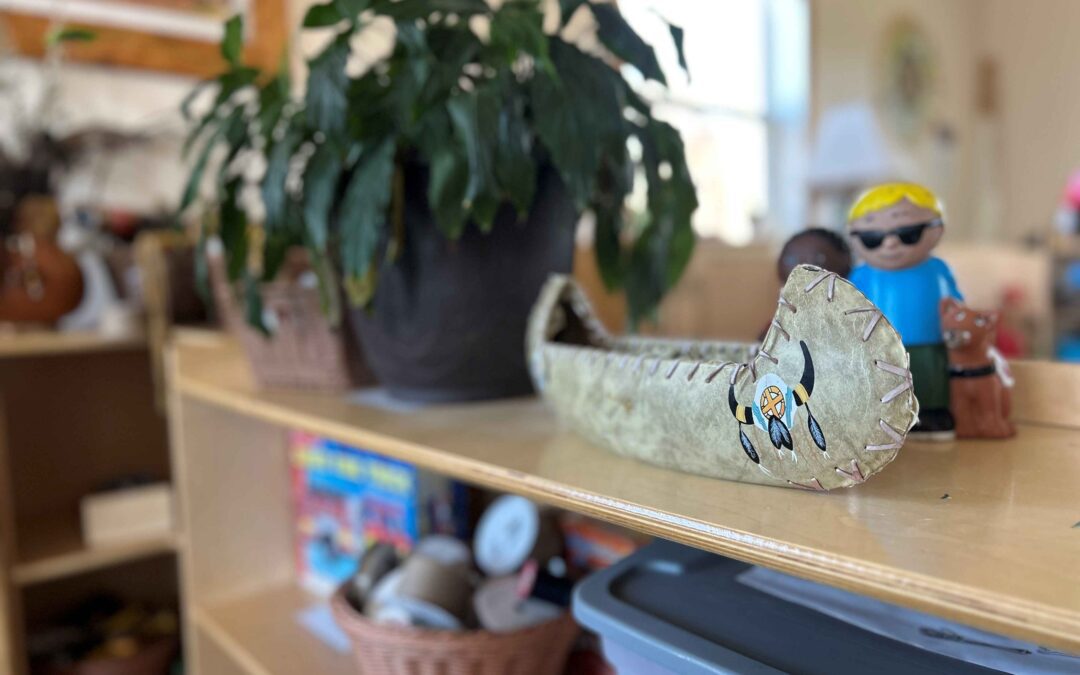Samantha Maltais Awarded Three-Year American Indian Law School Scholarship to Attend Harvard Law School
Maltais Plans to Serve Her Tribe and Indian Country
Denver, Colo.—March 30, 2021– A law degree is foundational to creating strong future Native leaders who understand the complex issues facing Indigenous people and how to safeguard the rights of Native Nations and individuals. Thanks to a gift of $1 million from an anonymous donor, the American Indian College Fund awarded its second three-year American Indian Law School Scholarship to Samantha Maltais, an enrolled member of the Wampanoag Tribe of Gay Head/Aquinnah located on Martha’s Vineyard, Massachusetts, for the term beginning in the fall of 2021-22. The scholarship covers all costs of attendance, including tuition, for the three-year course of study at Harvard Law School.
Samantha Maltais speaks with WGBH (NPR Boston) about her plans for the future.
The goal of the American Indian Law School Scholarship is to eliminate the financial hurdles to earning a Juris Doctor degree at Harvard Law School. The scholarship is open to American Indian or Alaska Natives who are an enrolled tribal member or lineal descendant of an enrolled parent or grandparent. Preference is given to tribal college and university graduates.
Samantha, who graduated in 2018 from Dartmouth College, where she was an American Indian College Fund Full Circle Scholar throughout her academic career, wrote about the history of Harvard University and its relationship with her Tribal Nation in her winning essay. “Harvard’s past is tied to my community, but I hope to weave our futures together as well.” Harvard University was established in 1636 in part for the “education of Indian youth.” The first Native graduate was a member of the small island Wampanoag Tribal community. Yet, centuries later, no Wampanoag person has graduated from the law school. With the financial support of the scholarship and a Harvard Law degree, Samantha hopes to hold the school to its charter and uplift Native people, who continue to fight in court to protect their rights and lands.
When Samantha learned that she earned an interview for admissions at Harvard Law School, she immediately called her grandmother, Edith Andrews, to share the news.
“Her voice broke over the phone.” Samantha said, “But, she wasn’t emotional because I received the invitation. She was emotional because, for the first time, someone from her family dared to believe they belonged there.” According to Samantha, this conversation “reinforced what it meant to me to be a Native person and an Aquinnah Wampanoag woman at Harvard Law School.”
“A law degree from Harvard will mean more than just what I can achieve myself. It will mean helping design a future where Tribal youth can imagine themselves at the university’s law school…a future where Native women and girls can see that they belong side by side with some of the Nation’s brightest legal minds. It means a step towards healing for my community and inspiring generations to follow,” she said.
Samantha is the latest in a long line of strong Native women leaders. Her mother, Cheryl Andrews-Maltais, is the Tribal Chairwoman of the Wampanoag Tribe of Gay Head/Aquinnah. Samantha’s mother and her father, Daniel Maltais, raised her in Wampanoag culture and traditions. A member of the Wolf Clan, Samantha said the matriarchs in her family have fought for the rights of her Tribal people since “contact.” Yet, she said of her matrilineal line, “None before me had the opportunity to fight with a legal education behind them. For generations, they were forced to rely on strangers to debate our past, present, and futures in the courtroom—strangers who held our sovereignty in their hands, knowing it means nothing to them but the world to us.” Samantha plans to marry her Tribal legacy of service with a legal education to help Native people—while also reimaging what equity and justice look like on every level.
Chairwoman Andrews-Maltais, said, “We always knew we had the first American Indian graduates from Harvard. In our community, it has always been a tremendous source of pride to have this distinction. The purpose of the charter of Harvard was to teach the English and Indian youth of this land. We have maintained this as an aspirational goal in our community. Samantha will be the first member of our tribe to attend Harvard Law School, and to have her be admitted is such a wonderful achievement. Because she is a woman, receiving the award during National Women’s History Month made it that much sweeter,” Andrews-Maltais said.
It was not until 1950 that Harvard Law School opened its doors to women. The law school was the last of the schools at Harvard to admit women: In 1879 undergraduate women were admitted to the “Harvard Annex” and in 1894, Radcliffe College was granted an official charter. Women gained admittance to The Harvard Graduate School of Education in 1920 and Harvard Medical School accepted female students in 1945.
With a scholarship paying for Harvard Law School, Samantha does not have to worry about paying for her education or letting debt define her career path. “I would not be able to do the same work for my community if I were ridden with student debt.”
Reflecting on her goals, Samantha stated, “Today, my Tribe, like so many others, fights in federal court to hold onto a broken promise of sovereignty. This is why I turned to law, to become a change agent in the body of harmful precedents, extricating notions of domination and discovery from justice.” She added these decisions about professional goals have cultural ramifications. “We are raised to give back; that’s who we are.”
Samantha said, “I am humbled, grateful, and honored to receive the support of the American Indian College Fund, both financially and emotionally.” She continued, “What [donors] are doing is incredibly important. The extraordinary minds that Native scholars offer not only these institutions but also the world and their communities don’t get enough attention, in addition to the achievements already lost because students were not able to do so [get an education] due to the steep cost…all we can do is think of Native youth and make sure that they have a clear path for the incredible things that they can achieve.”
Samantha knows Harvard Law School will give her a first-class legal education to serve her community and Indian Country. Chairwoman Andrews-Maltais said, “Carrying that mantle is a heavy one and it comes with a lot of burdens, but also with a lot of optimism and hope for the women behind you.”
About the American Indian College Fund— The American Indian College Fund has been the nation’s largest charity supporting Native higher education for 31 years. The College Fund believes “Education is the answer” and provided $9.25 million in scholarships to American Indian students in 2019-20, with scholarships, programs, and community support totaling over $237 million since its inception. The College Fund also supports a variety of academic and support programs at the nation’s 35 accredited tribal colleges and universities, which are located on or near Indian reservations, ensuring students have the tools to graduate and succeed in their careers. The College Fund consistently receives top ratings from independent charity evaluators and is one of the nation’s top 100 charities named to the Better Business Bureau’s Wise Giving Alliance. For more information about the American Indian College Fund, please visit www.collegefund.org.
Journalists: The American Indian College Fund does not use the acronym AICF. On second reference, please use the College Fund.
Photo: Samantha Maltais, © Samantha Maltais










